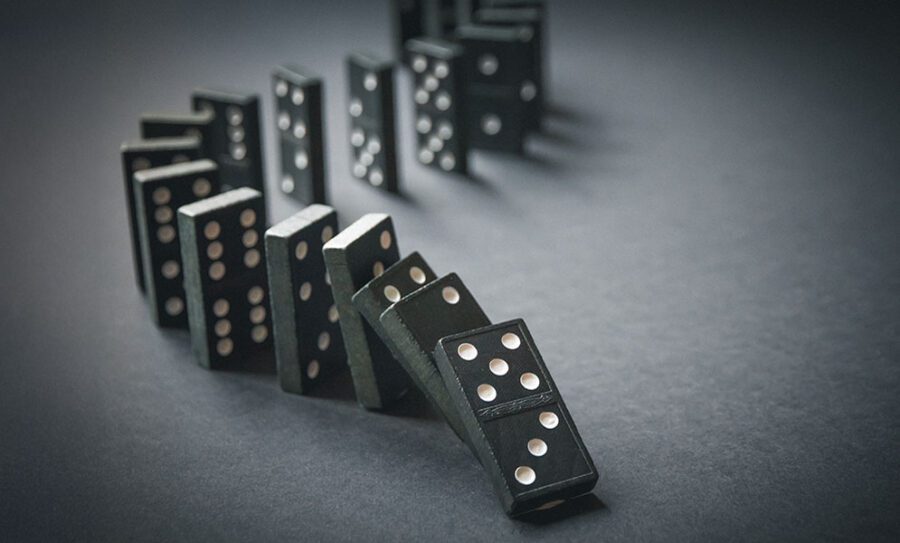Why the “how” of leadership matters more than ever
“All choices bring consequences.”
As a chronic procrastinator, I am late yet again to finish the next installment in this series on the pathway to education independence leadership. So far, we have considered education independence through the phases of ownership, discipline, freedom, and choice. This next installment is supposed to be on the value of considering consequences.
As the Challenge III program in Classical Conversations reminds us: “All choices bring Consequences.” Really? That’s the statement I’m supposed to consider in the wake of the assassination of Charlie Kirk. It feels like a bad joke. Consequences aren’t theoretical—they are live-streaming in real-time, in high definition, too raw to ignore. They pierce even the most numb, apathetic, detached soul.
They have pierced the eyes of my children, who just experienced the same unavoidable “glitch in the Matrix” feeling I remember when the Twin Towers fell. That moment when the wall between this dimension and the next feels paralyzingly thin. Is it fear? Is it awareness? Is it perspective? It’s that sinking realization that nothing really is as it appears—a consequence. In the study of physics, we learn that for every action there is an equal and opposite reaction. Sometimes those reactions unfold over generations, and sometimes they arrive in a single shattering moment.
This haunting, sobering pause forces us to stop, take inventory of all the consequences around us, and anticipate those yet to come. Dystopian novels imagine this pause. They teach us to consider what methods, once chosen, will ripple outward into unforeseen futures. But today is not fiction. Charlie’s death feels like a dystopian novel come alive.
Consequences in Civic Life
Charlie’s death is not just a personal tragedy; it is a civic consequence. It forces us to confront what happens when a society fails to uphold the value of life, liberty, and property. When we neglect to steward the blessings of liberty, we should not be surprised when liberty itself begins to erode.
The American experiment depends on methods consistent with its creed—truths declared at its birth, that men are “endowed by their Creator with certain unalienable Rights.” The Declaration of Independence named life and liberty; the Virginia Declaration of Rights, adopted just weeks earlier, added the inherent right to “acquiring and possessing property.” These principles together formed the bedrock of the republic.
If our civic methods abandon reverence for life, the consequence is death. If our methods disregard liberty, the consequence is tyranny. If our methods dismiss the protection of property, the consequence is exploitation and despair. These consequences do not appear out of nowhere—they are the bitter fruit of neglecting first principles.
Charlie’s assassination is a sobering reminder that when we fail to steward freedom faithfully, the consequences spill over into violence, disillusionment, and civic decay. We cannot pretend that the ideals of our republic will sustain themselves. Our methods of civic life, how we debate, how we govern, how we defend the image of God in one another, will determine whether liberty expands or collapses.
Consequences in Literature
Dystopian novels remind us that consequences are not abstract—they are baked into the methods chosen at the beginning. In 1984, the method of surveillance produced the consequence of fear and silence. In Brave New World, the method of distraction and pleasure produced the consequence of docility and control. In The Hunger Games, the method of spectacle produced the consequence of dehumanization and despair.
In every case, the rulers didn’t just dictate outcomes—they chose methods that shaped the soul of society. The “how” became the “what.” The method became the culture, and the culture became the cage.
These stories endure because they are not only fiction but warnings. They remind us that the same law of consequences applies beyond novels—into our civic life, and into our classrooms.
Consequences in Education
The same principle holds true for us today. Our methods of education are not neutral. If the medium is government money, the message will be provision and fairness, but the consequence will be dependency. If the method is collectivist funding, the consequence will be collectivist thinking. This is why Marxism always spreads through institutions—it trains not only minds but loyalties.
As Robert Bortins recently said in an interview with Allie Beth Stuckey, “What you win them with is what you win them to.” You cannot win families to true education independence by tying them to the purse strings of the very state philosophies we are trying to resist. If our methods lean on government provision, our consequences will be government control. That is the iron law of history, literature, and our current circumstances.
Conclusion: Living in a Dystopian Novel
Charlie’s death feels like a dystopian novel, but unlike the books we read, this is not a story we can close and walk away from. The consequences are not fictional. They are unfolding in real time.
Politics is downstream from culture, and culture is downstream from how faithfully a society defines, knows, and applies its first principles. That is why our choices cannot be defended only by good intentions. Motives may matter, but methods carry greater weight because methods create consequences far beyond what we intend.
If we choose methods that lean on the state, the consequence will be collectivism. If we choose methods that prioritize convenience, the consequence will be apathy. But if we choose methods rooted in truth, freedom, and discipline, we may yet raise up leaders who can stand in the ruins and rebuild.
This isn’t a book. It’s our life. And the methods we choose today will decide the story our children inherit tomorrow. Today is not fiction.





